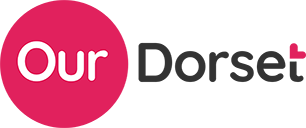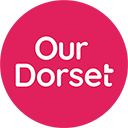Health inequalities exist in different guises throughout Dorset due to its demographics and geography, with people in some areas on average living 10 years longer than others. Patient Participation Groups (PPGs) are uniquely placed to be able to support their GP practices in addressing inequalities in their local area.
During the first Covid-19 lockdown, the PPGs in Weymouth & Portland highlighted concerns that changes in the way people access GP services could disadvantage people in the local area. Parts of Weymouth and Portland fall within the top 10% of deprived areas nationally. The PPGs worked with their local Primary Care Network (PCN) to develop a survey that would identify the impact these changes had on patients, what access people had to digital technology, and how they used it. An independent report was published based on the findings from the questionnaire and from this the PPGs worked with the PCN to develop a list of potential improvements that could be implemented.
One suggestion from this project was to help digitally disadvantaged people get easier access to telephone and face-to-face services by supporting digitally savvy people to manage their health online. The PPGs worked with the PCN to create a team of digital volunteers who could provide peer-to-peer support for patients wanting to access their patient record, view test results and book appointments.
During 2020, many practices were inundated with phone calls from concerned patients. The Cranborne & Lake Road Practice identified a large number of calls were due to patients wanting information from the surgery, meaning people who wanted an appointment were unable to get through. The PPG worked with the practice to develop an automated telephone line, giving the latest information about the practice and Covid-19, which could be regularly updated. The phone service was well used by people in the local area, freeing up the surgery’s main telephone line for people needing GP services.
PPGs in mid-Dorset were concerned that people in the local area were not aware of the help and support available from voluntary and community sector organisations, especially in light of Covid-19. The PPGs created an event called ‘Help: Your Health, Your Community’, which aimed at helping local organisations network with each other, give people the opportunity to see the support available in the local area and hear from keynote speakers on health, wellbeing and mindfulness. From this event, the first Public Living Room in Dorset has been created in Dorchester and the PPGs are working with the healthcare sector to better improve signposting to local voluntary and community services.
The PPGs in Purbeck were concerned that younger voices were not represented at their meetings. The groups worked with their PCN to develop a Youth PPG (YPPG), where local young people could come together, discuss issues and share their experiences with the PCN to ensure the voice of this group could be heard.
A PPG in Sherborne was aware that many older people in the local area did not have access to contact details for organisations in the area including community groups, charities, health and care organisations and tradespeople. The group worked with local organisations to identify key groups to include on the list, along with contact telephone numbers, gained sponsorship for printing of the document and helped to distribute the directory across the local area.

